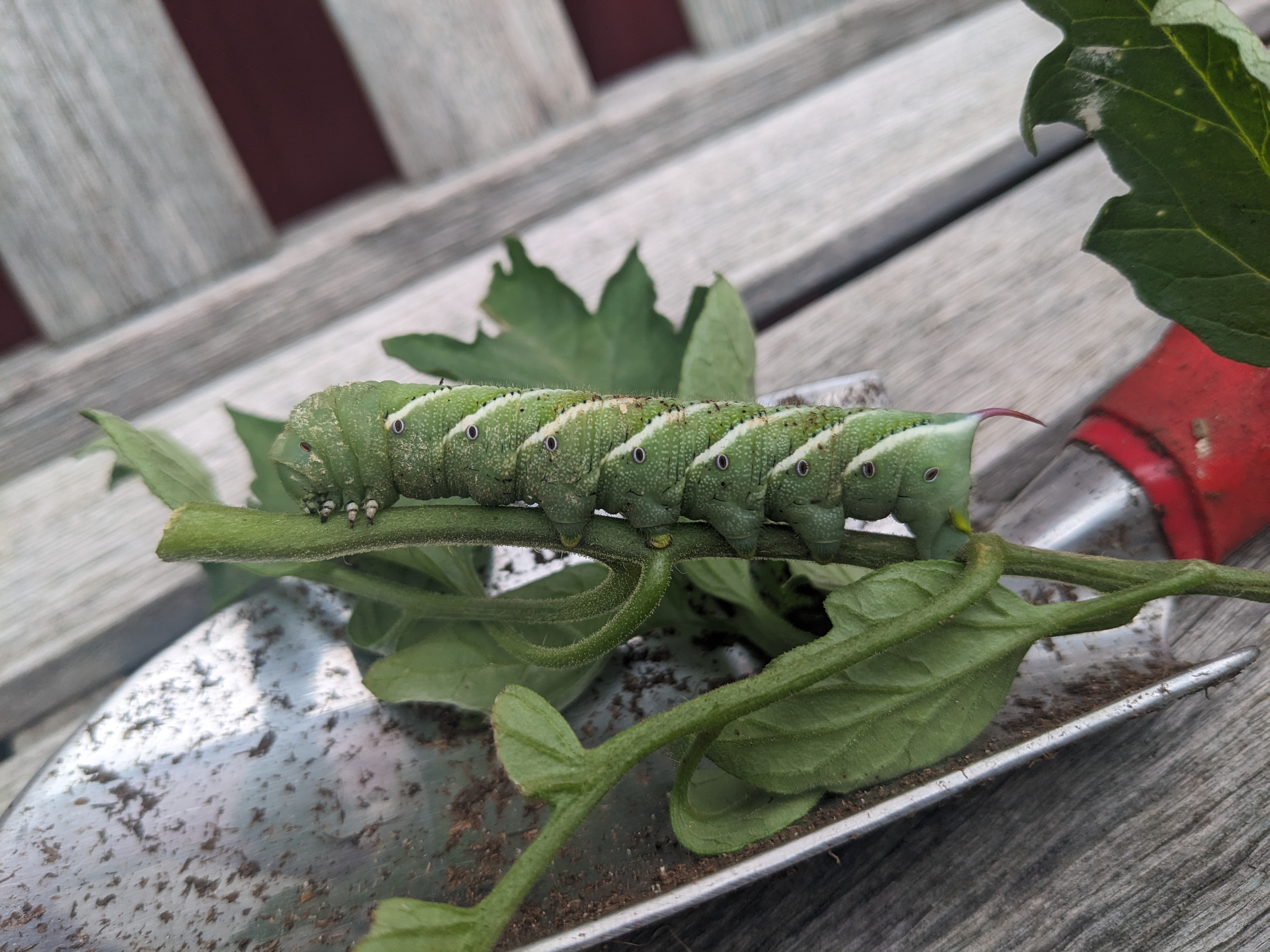Upvoted the photo. I'd downvote the caterpillar if I could.
Nature and Gardening
All things green, outdoors, and nature-y. Whether it's animals in their natural habitat, hiking trails and mountains, or planting a little garden for yourself (and everything in between), you can talk about it here.
See also our Environment community, which is focused on weather, climate, climate change, and stuff like that.
(It's not mandatory, but we also encourage providing a description of your image(s) for accessibility purposes! See here for a more detailed explanation and advice on how best to do this.)
This community's icon was made by Aaron Schneider, under the CC-BY-NC-SA 4.0 license.
you'll be happy to know there is a parasitic wasp that will inject it's eggs into m. Sexta caterpillars. the eggs are coated in a virus that shutsdown and then reboots the caterpillar's immune system. By doing so, it resets the caterpillar's immune sytem, so that anything within the caterpillar's body is consider part of the caterpillar by the immune system.
then, the eggs hatch, and the magic begins. the larvae slowly eat their way out of the living caterpillar's body and then go off to pupate.
beautiful, ain't it?
👀
Just to add to this, many types of parasitoid wasps are fully dependent on pollen and nectar in their adult forms. Plants like Achillea millefolium, Solidago spp., Pycnanthemum spp., Eupatorium spp., and Apiaceae spp. are great additions to gardens for those who'd like these incredible insects patrolling for them.
 I'm only a little bit afraid.
I'm only a little bit afraid.